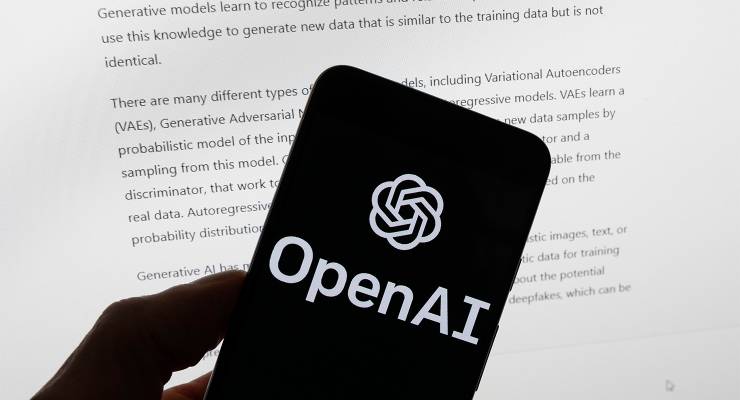
Increased economic productivity is the exalted aim of the 21st-century state, the holy grail of every treasurer or Reserve Bank governor. But what does it really mean? At its simplest, an increase in productivity is the ability to produce more with less. Grow more wheat on less land, run a factory with less electricity, but most commonly, create more things with fewer workers.
As the central bank asserts in its chirpy explainer, productivity is good because it “contributes to the economic prosperity and welfare of all Australians”. How? Supposedly by increasing wages, lowering prices, driving up profits, and generally by increasing growth. It’s a great bedtime story: simple, reassuring, with a happy ending. The key point left out is that making more of anything with less labour means less demand for that labour, often leading to fewer jobs and reduced wages.
This year’s Asia-Pacific Economic Cooperation (APEC) Summit is taking place in the tech centre of the world, San Francisco, and among this year’s themes of sustainability, inclusivity, innovation and resilience, there is surprisingly little mention of the growing impact artificial intelligence will have over the coming decade.
I say surprisingly because, as far as economic topics go, AI is the single most important story of the coming decade. Following the release of ChatGPT, almost every major consultancy has or is in the process of scrambling to pull together a report on the anticipated economic impact of AI. How will it accelerate growth, productivity, the labour market, and sales?
PricewaterhouseCoopers (PwC) was one of the first out of the gates with “Sizing the prize”, a study concluding that in the year 2030 AI could be contributing up to $15.7 trillion to the global economy (to put that into perspective, that’s more than the current output of China and India combined). Meanwhile a survey conducted by research firm Valoir — of more than 1000 employees over a range of sectors and roles including finance, HR, IT, marketing, operations, sales and the service industry — concluded that generative AI could replace 40% of the average working day.
This finding is replicated in a similar report by Goldman Sachs. The firm’s analysis of 900 different occupations showed that with just the application of existing AI technology, roughly two-thirds of jobs could be fully or mostly automated. McKinsey Digital was even more optimistic, suggesting that if implemented today, current generative AI (let alone future improvements) has the potential to automate work activities that absorb up to 70% of all employees’ time.
In the past, while changes in technology, including the advent of the digital revolution and the widespread use of computers, have led to lay-offs and the mass restructuring of the economy, new technologies have also led to the corresponding emergence of novel and unforeseen industries and the creation of entire job sectors. The digital revolution disrupted traditional enterprises and many people were left behind, but there is an argument to be made that, overall, total labour demands went up, and the progress it brought has made us materially better off, though perhaps less happy. Plus, at the end of the day, there really wasn’t much choice. If we hadn’t embraced digital, others would have — and nobody wants to be left behind in the proverbial stone age.
However, the AI revolution will be fundamentally different. It will not repeat historical patterns following the introduction of new technology into the workplace. Unlike previous technology tools, AI has three axiomatic differences.
Firstly, it is the first tool in human history that can determine a preferred course of action by itself. Computers were tools. They helped humans perform calculations, but did not indicate what calculations should be made. They could help make typing and sending a letter faster, but could not decide if a letter was fit for purpose or should be sent.
Secondly, having determined a decision, next-generation AI will be the first invention in human history capable of agency — able to undertake steps to enact a decision independent of a human actor and more efficiently than a human could. In deciding to build a new model car, it can determine all the actions needed to bring that project to life and can send out instructions, order materials and monitor progress.
Thirdly, it could soon be the first technology to have the capacity to form new ideas. Novel thoughts and creations, from literature and fine art to invention. The content of the letter it decides to write, in the pathway of actions it takes to complete a goal, will be entirely of its own making.
As an economist, I think the reports by Valoir, PwC, Goldman Sachs and McKinsey grossly underestimate the upheaval that AI will bring. This is not a disruptive tool; it is a dystopian one, at least in the medium term. At our core, humans are social creatures, and we express our utility to the group through our contribution — through meaningful work and production. What is our role in an AI future? As these many reports make clear, the technology’s role is seemingly limitless.
Yet in their zealous enthusiasm to unveil how increases in productivity will drive exponential profits and growth, one key part of the narrative is missing. Where do we, the people, fit in? Profit perhaps, but for whom? And what happens to the rest of us? Economics is a model mapped from reality, a simplified mathematical reflection of social order, in which productivity is not the complete sum of human life. In a new economy where AI not only replaces much of the workforce, but is the inventor, the decision-maker and the determinant of our economic trajectory, what role do we play?
The new era of computational economics is and should be a major topic of APEC this year, for Davos next year, and for all international forums for years to come.








History provides some clues. When a large number or class of people are seen as economically or socially redundant, superfluous or otherwise unwanted by the governing class they might be
Global heating will be a comparable driver of this, perhaps even more than AI. We see the consequences already, sometimes in combinations, it will just get much more prevalent.
Each compounding the other.
Then A.I. examines the situation, finds out it’s the Humans that cause the problem and eliminates them.
Simples, yes?
SKYNET decides?
Where do we fit in ?
Just look at America, where working people need 2 or 3 jobs and “tips” just to survive and live in trailer parks.
That’s Australia’s future in 20 to 25 years.
… How do economists increase their productivity?
More bullsh i te with less thought.
They make an assumption and that does it.
“Lifters and leaners”?
This emphasis on ‘productivity’ as a lead-in to wages growth – when stagnant/decreasing wages suit profit-driven business/employers?
Again, how do economists, the media, politicians, executives (BCA), lobbyists and their like ‘lift production’ to justify their disproportionate wage increases?
When company executives ‘lay-off’ workers; cream-off profits to ‘share-holder returns’ (and subsequent self-bonusing) rather than invest in stock to help employees increase their productivity?
When they deliberately under-pay workers or withhold super contributions, ‘because of they can’t afford’ those overheads in such a ‘competitive climate’?
When they diminish the capacity for discretionary spending of their workers – with the flow-on across the economy as other duplicate those employment practices – who’s left can afford to buy their products?
When some executive makes a ‘smart/profitable executive decision’, that ultimately flushes the company’s reputation down the toilet – that that executive decision then requires a huge outlay, taken from profits, to buy good advertising publicity, to reclaim market reputation – but that executive is kept on, if ‘hidden’?
Is that ‘productivity gains’ justifying their increased leaner pay?
Rather than do the work to sell ideas to the greater public, hire ‘ex’-politicians (on disproportionate pay) to open doors to government to sell those ideas, to policy – policy that may not be in the interests of the greater good? “Productivity”?
How do politicians increase their productivity?
The biggest story is Climate change. It is hitting us at ever increasing intensities. You won’t be worried about AI when all your older relatives are dying from heat stroke and you are wondering how you can get food etc without going outside.
Ask AI for help?
“Hey Google how does one survive in 50 degrees”
“I’m melting”.
If AI does what is claimed, it would conclude that all policy that tolerates increasing emissions is criminally idiotic. Government will not deploy it to expose policy idiocy. But will license it to make more than half the population redundant and despondent.
There’s also increasing evidence of just how AI is going to further drive the climate crisis due to the resources taken up creating and running it and all the data it is going to create, which has to be stored somewhere.
So faced with that evidence you support nuclear, right?
Nah, as the hippies used to say, ‘never trust anyone over 30’ – somewhat modified as the survivors aged (most did not mature, just rotted).
Get rid of everyone over
30,…err40...um 50?Coming soon, an enhanced, more virulent plague near you, the new improved Boomer Remover.
Pull the Plug(s).
Google’s server farms in 2020 used 15.5 terawatt hours worldwide – about twice as much as San Francisco.
At least 3/4 of that was in the USofAholes alone – for vitally important functions such as selfie storage & cat videos.
The West seems to have ceased to take itself seriously as its collective head explodes – more accurately implodes which would be preferable – while the rest of the human race looks on askance, praying the pieces wouldn’t ‘fall-out’ (sic!) of them from the Day of the Locust.
Civilisations rot from within, long before external forces intervene.
The West?
Erm aren’t most of those cat videos coming from the billions in China?
But you’re right about the scale of the challenge we face. That’s why we need to plan accordingly and throw everything at it including nuclear power.
Good points and I agree climate is absolutely a meta crisis right up there with current increased nuclear risks
Humans evolved slowly, AI is moving at speed & we will have no plan to contain or control it. When it reads the science on how to reduce global warming will it recognise the solution we seem incapable of implementing? Or, like us, will it simply refer to corporate balance sheets…? I suspect we know the answer – whether humans or AI are in control the planet is at high risk.
An excellent analysis of the disjuncture of Economics and actual humanity. This fundamental deficiency has always existed. It is not a deficiency exposed by AI. But the harm the deficiency will cause with respect to AI will be more severe that any other error of the dismal science in the past.